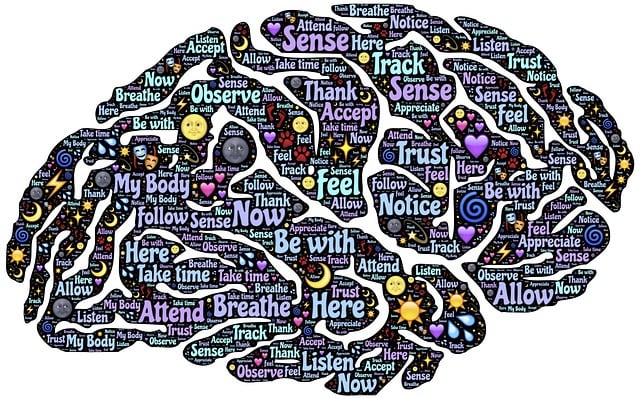Westminster Online Therapy revolutionizes crisis intervention in a fast-paced world by leveraging technology to break geographical barriers and offer accessible, high-quality care. With a focus on early recognition of distress signals, their evidence-based practices prioritize client stability and long-term well-being. The platform equips therapists with robust crisis intervention skills through continuous training, self-reflection, and resilience-boosting measures, addressing both professional and personal emotional challenges while maintaining ethical boundaries.
“In today’s fast-paced world, crisis intervention is a vital skillset for therapists, with Westminster Online Therapy leading the way in remote support. This comprehensive guide explores effective strategies for modern practitioners. From understanding crisis intervention fundamentals to leveraging technology through platforms like Westminster Online Therapy, we delve into early distress signal detection and post-crisis care. Additionally, ethical considerations and self-care practices ensure professionals can offer stable recovery paths without burning out.”
- Understanding Crisis Intervention: A Necessary Skillset for Modern Therapists
- Westminster Online Therapy: Leveraging Technology for Remote Support
- Identifying Distress Signals: Early Detection for Effective Interventions
- Strategies for Stable Recovery: From Assessment to Post-Crisis Care
- Ethical Considerations and Self-Care for Intervention Practitioners
Understanding Crisis Intervention: A Necessary Skillset for Modern Therapists

In today’s fast-paced world, therapists and mental health professionals need a robust toolkit to address the diverse challenges their clients face. Crisis intervention strategies have become an indispensable skill for modern therapy practices, particularly in online settings like Westminster Online Therapy. The ability to effectively guide individuals through acute crises is not just a professional necessity but also a critical aspect of care that can significantly impact long-term well-being.
Understanding crisis intervention involves mastering the art of assessment, self-awareness exercises, and prompt action. Therapists must be adept at recognizing the signs of distress and implementing evidence-based techniques to stabilize clients. Self-esteem improvement strategies, for instance, play a pivotal role in empowering individuals to navigate turbulent times. Moreover, risk assessment for mental health professionals is crucial to ensure both client safety and therapist resilience. Through continuous training and self-reflection, therapists can enhance their crisis intervention capabilities, fostering a supportive environment that enables meaningful healing.
Westminster Online Therapy: Leveraging Technology for Remote Support

Westminster Online Therapy offers a revolutionary approach to crisis intervention by leveraging technology to provide remote support. In today’s digital era, this platform enables healthcare providers and individuals alike to access professional therapy from the comfort of their homes, breaking down geographical barriers that traditionally limit access to mental health services. With a focus on burnout prevention strategies for healthcare providers, Westminster Online Therapy ensures that support is readily available, promoting both resilience and confidence-boosting measures in an increasingly demanding profession.
The platform’s user-friendly interface facilitates seamless communication, incorporating various digital tools to enhance the therapy experience. From video conferencing for face-to-face sessions to secure messaging for asynchronous support, Westminster Online Therapy caters to diverse preferences and needs. Moreover, its Mental Wellness Podcast Series Production serves as an additional resource, offering a rich library of content designed to deepen understanding and promote mental wellness. By combining cutting-edge technology with evidence-based practices, Westminster Online Therapy is transforming crisis intervention strategies, making high-quality care more accessible than ever before.
Identifying Distress Signals: Early Detection for Effective Interventions

In today’s fast-paced and demanding world, recognizing distress signals early is a cornerstone of effective crisis intervention strategies, especially in healthcare settings. Westminster Online Therapy underscores the importance of vigilant observation for signs of mental health struggles or burnout among individuals seeking support, including healthcare providers themselves. By fostering an environment where open dialogue about emotional well-being is encouraged, professionals can proactively identify potential crises before they escalate. This early detection involves being attuned to both verbal and non-verbal cues—from changes in communication patterns to physical manifestations of distress.
Crisis intervention guidance emphasizes the need for sensitive and immediate response to these signals. This not only supports individuals experiencing acute distress but also contributes to broader burnout prevention strategies for healthcare providers. Addressing mental illness stigma reduction efforts is integral to this process, as it encourages a culture of empathy and understanding, allowing for more effective interventions and improved patient outcomes.
Strategies for Stable Recovery: From Assessment to Post-Crisis Care

A key aspect of crisis intervention is fostering a stable recovery process. This involves a multi-step approach starting with thorough assessment to understand the individual’s crisis and underlying factors. Mental health professionals must employ comprehensive risk assessment techniques to identify potential dangers and develop tailored interventions. At Westminster Online Therapy, we recognize that every client’s journey is unique, necessitating personalized strategies.
Post-crisis care plays a pivotal role in ensuring long-term stability. This includes implementing burnout prevention strategies for healthcare providers to maintain their well-being while supporting others. By integrating crisis intervention guidance and risk assessment techniques into practice, mental health professionals can provide effective care, enhance client outcomes, and contribute to building resilience.
Ethical Considerations and Self-Care for Intervention Practitioners

Crisis intervention practitioners play a vital role in providing immediate support and guidance during challenging situations. However, the nature of their work can be emotionally taxing, highlighting the importance of ethical considerations and robust self-care practices. It is essential for professionals to maintain boundaries, ensure confidentiality, and prioritize their well-being to deliver effective assistance. Westminster Online Therapy offers valuable resources and tools for therapists navigating these complex dynamics.
Self-care routines are not merely an indulgence but a necessity for those in helping professions. Developing a structured self-care practice can significantly boost confidence and resilience. Practitioners should aim for a balanced routine that incorporates mental health nurturing, such as mindfulness exercises, regular physical activity, adequate sleep, and engaging in hobbies or activities that bring joy and relaxation. By adopting these practices, interventionists can enhance their own mental health while better serving the individuals they support, creating a positive cycle of care and growth.
In conclusion, modern therapists require a comprehensive understanding of crisis intervention strategies to effectively support individuals in distress. By leveraging technology like Westminster Online Therapy, practitioners can offer remote support, making therapy more accessible. Early detection of distress signals is key, allowing for timely interventions. The article highlights practical strategies for stable recovery and emphasizes the importance of ethical considerations and self-care for intervention practitioners. Embracing these guidelines ensures a nurturing and professional approach to crisis care, ultimately fostering healthier outcomes.














